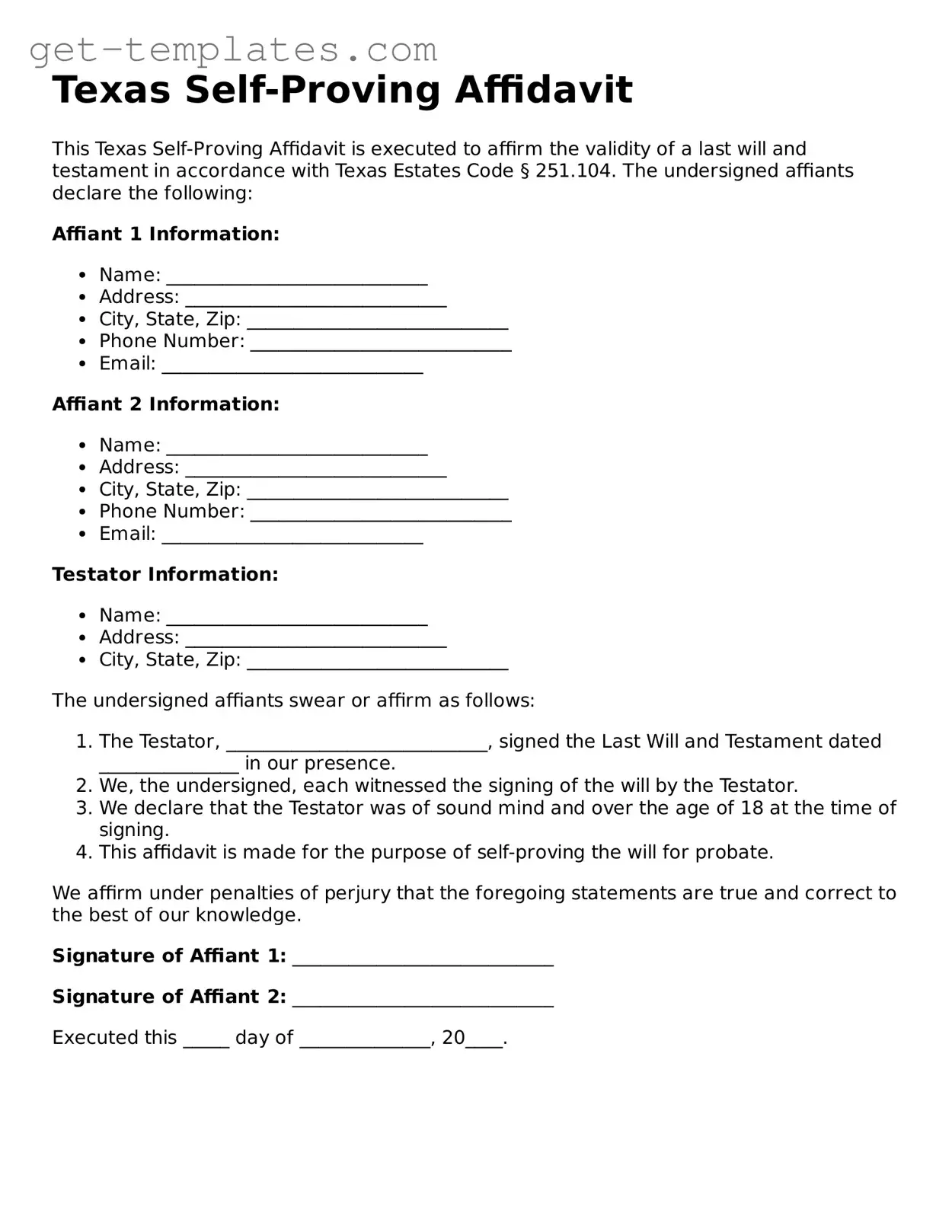Attorney-Approved Self-Proving Affidavit Document for Texas
The Texas Self-Proving Affidavit is a legal document that allows a testator's will to be validated without requiring witnesses to appear in court. This form simplifies the probate process by providing a sworn statement from the testator and witnesses affirming the will's authenticity. Understanding how to properly complete and file this affidavit can save time and resources during estate administration.
Get Document Online

Attorney-Approved Self-Proving Affidavit Document for Texas
Get Document Online
You’re halfway through — finish the form
Finish Self-Proving Affidavit online — edit, save, download made easy.
Get Document Online
or
⇓ PDF Form
